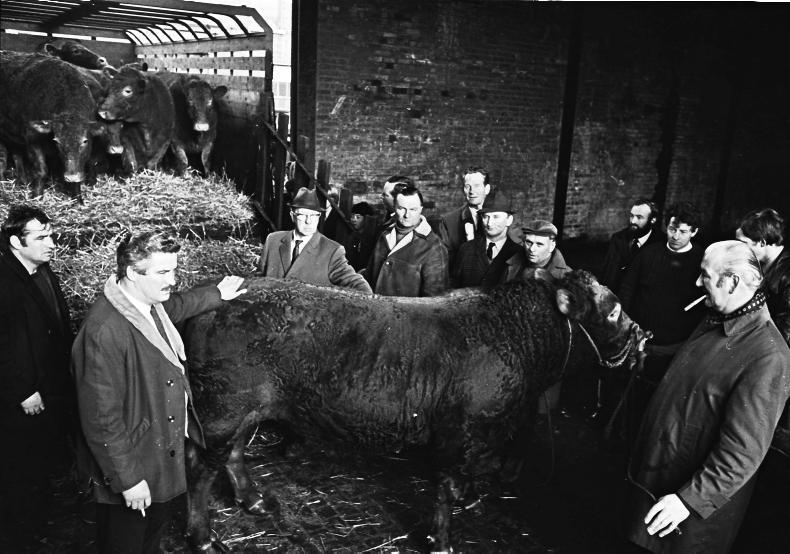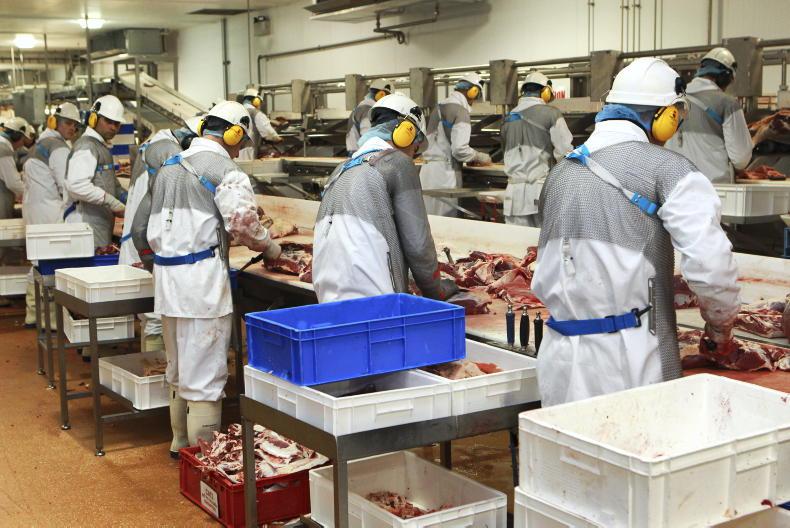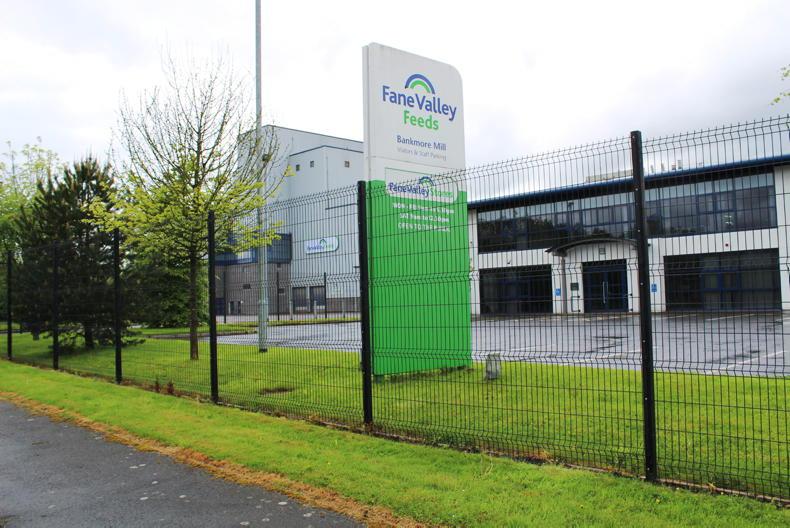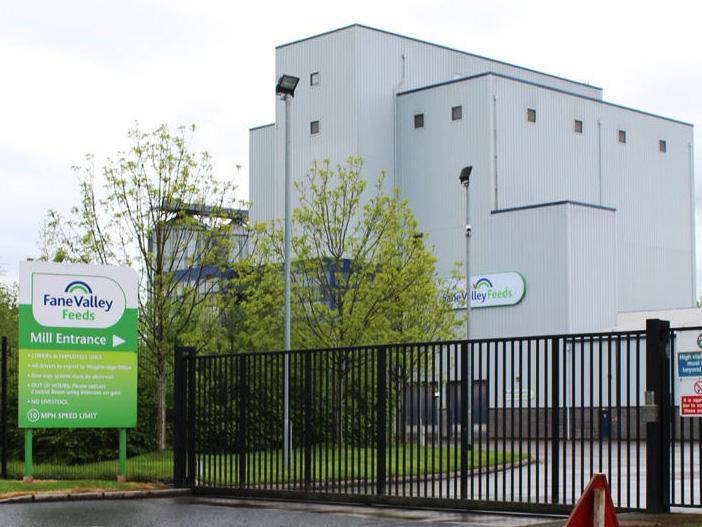With ABP buying out the remaining Fane Valley interest in Slaney, ICM and Linden, we now have a lamb, beef and pigmeat processing sector that is entirely controlled by privately owned companies.
It wasn’t always the case.
In the 1980s, it was a very different scene, with Cork Marts controlling the large IMP beef processing business and with the Kerry Group also trying its hand in the business.
Meanwhile, the backbone of what today is Dawn Meats was the acquisition of Kerry’s meat factory Meadow Meats and Avonmore Co-op’s (Glanbia) beef and lamb factories after the co-op failed in its bid to make a good of meat processing.
Not just an Irish problem
Of course, it was not just Irish farmers who failed in the processing sector – French and New Zealand farmers have also learned the same lesson, albeit more recently.
Dawn Meats’ entry into the processing sector in France was facilitated by the French farmer-owned co-op Elivia looking to reduce their exposure to the meat business, largely due to financial challenges.
Similarly in New Zealand, where the farmer co-op model has proved so successful in dairy, the farmer-owned beef and lamb processing co-op Silver Fern Farms sold a 50% stake to China’s Bright Foods.
Even the plc model struggles to survive in beef and lamb processing.
ABP’s venture across the Irish Sea was facilitated by the decision of Dalgety plc to exit the sector.
It raises the question as to why farmer-controlled co-ops have repeatedly failed to successfully navigate the meat processing sector and why plcs are slow to get involved
Perhaps the best place to start is by looking at those privately owned companies that have been most successful – mainly Larry Goodman’s ABP Food Group, the Dan Browne-led Dawn Meats and the Kepak Group established by the late Noel Keating.

A shipment of 20 in-calf heifers and three bulls of the South Devon breed arrived in Dublin in 1972. IMP helped import the cattle.
All three men were famously ruthless businessmen, with an unrelenting focus on costs and margins.
None accepted waste, instead always viewing the potential to add value as an opportunity to get one up on a competitor.
Their acquisition of co-op-controlled sites always led to stripping out of costs, particularly in relation to labour.
An example of which was the simple introduction of hydraulic platforms, which, for example, allowed one man to wash the entire carcase – previously having been a two-man process standing on a fixed platform at different heights.
They also focused on adding value, particularly in relation to fifth-quarter cuts, and adopting a policy of specifications to the outer limits – often going a few steps further in this process than their co-op-structured competitors.
With skin in the game, these men knew the need to work hard in a tight-margin business
They had a reputation for early starts and late finishes, often leading the charge themselves into new far-flung markets – they expected the same of their management teams.
Weekends were merely seen as an opportunity to integrate the performance of their various operations and develop the plan for the strategy ahead.
Having skin in the game not only increased the appetite for hard work, but also for risk – an appetite that perhaps would not have been acceptable around a boardroom table from which co-op executive teams would have required approval.

Dan Browne. PIC: DOL
Certainly, in the 1980s, such was the market outlets for Irish beef, the ability to think fast, negotiate a deal, enhance the package for those on the opposite side of the negotiating table and deliver the goods, all yielded handsome dividends – again the limitations of the co-op structure were clear in this environment.
Among the skill sets needed to operate a meat processing business in this era was the ability to maximise the utilisation of EU support mechanisms, pushing boundaries to the limit in the process.
Of course, things gradually changed in the 1990s as the Irish beef industry shifted its focus from third-country markets and intervention to the British retail market.
But by this time, the co-op presence in the sector had collapsed and privately-owned Irish meat processors had a firm grip on the Irish sector along with a growing presence in Britain.
Throughout the 1990s and early 2000s, the key Irish players ABP, Dawn and Kepak all continued to grow their foothold in Britain and Northern Ireland, while developing new markets across Europe.

Undoubtedly the most successful in penetrating the British retail market was ABP, with Dawn Meats having been more successful in the premium food service sector.
While Kepak established a processing footprint, they all but exited the market, opting to instead concentrate on the Irish and European markets. Then in a change of policy in 2018, they re-entered the UK market with the acquisition of the red meat division of 2Sisters.
With the big three Irish processors focusing on growth outside of the country, very little changed in the Irish processing sector from 2000 to 2010.
While a few plants changed hands, the big three operated alongside a network of independent factories – many of whom were consistently able to outbid the bigger players when it came to buying cattle.
A different landscape through horsemeat
However, in recent years, the landscape has changed significantly.
Looking back, the two main drivers of change were Dawn Meats, securing the McDonalds contract to produce beef patties through their purpose-built facility in Waterford, quickly followed by the horsemeat scandal in 2013 – the fallout of which gave farmers, and indeed retail customers, an insight into the complexity of the beef supply chain and the level of inter-trading taking place between what were viewed as independent plants and the larger groups.
In many cases, it was the level of business that these independent factories had with the larger groups that was keeping them in business.

Larry Goodman, AIBP at the 2011 NPA Championships at Athy
Horsemeat led retailers to look much closer at the supply chain – a move which saw them force their processing partners to have total control over the product being supplied.
This move effectively prevented processors dealing with big retail and food service customers from inter-trading with independent processors.
In October 2016, we published an article in the Irish Farmers Journal asking what future the smaller independent plants had in this new market environment.
Our conclusion that the big would get bigger and the independent plants would disappear is certainly proving correct when we look at what has played out in recent months, with Linden Foods and Dunbia effectively being absorbed into Larry Goodman’s ABP Food Group and Dawn Meats, now controlled by Dan’s son Niall Browne.
So what does the future hold?
There is no doubt we will see further consolidation in the beef and lamb processing sectors. Independents are going to struggle to attract premium business and therefore compete on price with the larger groups when it comes to paying for cattle – particularly in the case of in-spec stock.
This trend has been clearly evident in the Irish Farmers Journal factory price leagues in recent years, with the ABP Food group consistently out-pacing independents that once had a strong grip at the top of the market.
The only exception was Jennings Meats in Co Mayo which, due to its contract with Dunne Stores, competes strongly for the specific type of animals it requires.
In some ways, Jennings is the exception that proves the rule, but it also demonstrates that there is a space for the smaller independent niche business.
In future, independents will have speciality niches which make them different to, and in a different space than, the large mainstream groups.
The question for farmers is how should they respond to the changes taking place.
The short-term and perhaps most popular response is to jump up and down and call on the Competition Authority to prevent further consolidation in the sector.
It will certainly be interesting to see how the farm organisations respond this week when they have to make submissions to the Competition Authority ahead of the 30 June deadline regarding the Dawn Meats and Dunbia deal.
In many ways, it is a much more significant venture for Irish farmers than the ABP-Slaney Meats joint venture which farmer organisations reacted so angrily to.
Ultimately what farmers need is to achieve a balance between scale and transparency.
We have to recognise that farmers benefit from having a processing sector of suitable scale that delivers efficiencies and can engage with a highly consolidated retail sector in Britain and Europe. Scale will also be critical if we are to stand any chance of capturing new markets outside of the EU, in particular China and the US.
There is no doubt that the recent success of Slaney Foods in the US was facilitated by the routes to markets developed by the ABP Food Group.
Secret companies
On the flip side, it is not tenable for Government to allow a situation develop where the fortunes of rural Ireland can be controlled by a small group of privately-owned processors where there is zero transparency around profit margins and indeed little oversight in how animals are trimmed and graded.
Ultimately, further consolidation should be aligned to the introduction of legislation that delivers increased transparency around both financial returns and processing oversight, including trim grading throughput and volumes in storage and market prices.
Looking further ahead - does the opportunity exist for farmers to regain some control of the beef and lamb processing sector?
The answer is yes, but not in the sense that most would envisage.
There is no need to rush out and own processing sites and take on all the headaches that go with it.
Instead, if this is what farmers want to do, the strategy should be to establish a co-op that engages directly with a retailer looking for a point of difference – much in the same way as we have seen take place in the dairy sector in the UK.
It would be a slow process, but one that could see the processor become a service provider rather than the kingpins they are today.
Don’t expect it to happen overnight though.
Read more
ABP move on Fane Valley predictable
ABP to buy out remainder of Slaney, ICM and Linden
With ABP buying out the remaining Fane Valley interest in Slaney, ICM and Linden, we now have a lamb, beef and pigmeat processing sector that is entirely controlled by privately owned companies.
It wasn’t always the case.
In the 1980s, it was a very different scene, with Cork Marts controlling the large IMP beef processing business and with the Kerry Group also trying its hand in the business.
Meanwhile, the backbone of what today is Dawn Meats was the acquisition of Kerry’s meat factory Meadow Meats and Avonmore Co-op’s (Glanbia) beef and lamb factories after the co-op failed in its bid to make a good of meat processing.
Not just an Irish problem
Of course, it was not just Irish farmers who failed in the processing sector – French and New Zealand farmers have also learned the same lesson, albeit more recently.
Dawn Meats’ entry into the processing sector in France was facilitated by the French farmer-owned co-op Elivia looking to reduce their exposure to the meat business, largely due to financial challenges.
Similarly in New Zealand, where the farmer co-op model has proved so successful in dairy, the farmer-owned beef and lamb processing co-op Silver Fern Farms sold a 50% stake to China’s Bright Foods.
Even the plc model struggles to survive in beef and lamb processing.
ABP’s venture across the Irish Sea was facilitated by the decision of Dalgety plc to exit the sector.
It raises the question as to why farmer-controlled co-ops have repeatedly failed to successfully navigate the meat processing sector and why plcs are slow to get involved
Perhaps the best place to start is by looking at those privately owned companies that have been most successful – mainly Larry Goodman’s ABP Food Group, the Dan Browne-led Dawn Meats and the Kepak Group established by the late Noel Keating.

A shipment of 20 in-calf heifers and three bulls of the South Devon breed arrived in Dublin in 1972. IMP helped import the cattle.
All three men were famously ruthless businessmen, with an unrelenting focus on costs and margins.
None accepted waste, instead always viewing the potential to add value as an opportunity to get one up on a competitor.
Their acquisition of co-op-controlled sites always led to stripping out of costs, particularly in relation to labour.
An example of which was the simple introduction of hydraulic platforms, which, for example, allowed one man to wash the entire carcase – previously having been a two-man process standing on a fixed platform at different heights.
They also focused on adding value, particularly in relation to fifth-quarter cuts, and adopting a policy of specifications to the outer limits – often going a few steps further in this process than their co-op-structured competitors.
With skin in the game, these men knew the need to work hard in a tight-margin business
They had a reputation for early starts and late finishes, often leading the charge themselves into new far-flung markets – they expected the same of their management teams.
Weekends were merely seen as an opportunity to integrate the performance of their various operations and develop the plan for the strategy ahead.
Having skin in the game not only increased the appetite for hard work, but also for risk – an appetite that perhaps would not have been acceptable around a boardroom table from which co-op executive teams would have required approval.

Dan Browne. PIC: DOL
Certainly, in the 1980s, such was the market outlets for Irish beef, the ability to think fast, negotiate a deal, enhance the package for those on the opposite side of the negotiating table and deliver the goods, all yielded handsome dividends – again the limitations of the co-op structure were clear in this environment.
Among the skill sets needed to operate a meat processing business in this era was the ability to maximise the utilisation of EU support mechanisms, pushing boundaries to the limit in the process.
Of course, things gradually changed in the 1990s as the Irish beef industry shifted its focus from third-country markets and intervention to the British retail market.
But by this time, the co-op presence in the sector had collapsed and privately-owned Irish meat processors had a firm grip on the Irish sector along with a growing presence in Britain.
Throughout the 1990s and early 2000s, the key Irish players ABP, Dawn and Kepak all continued to grow their foothold in Britain and Northern Ireland, while developing new markets across Europe.

Undoubtedly the most successful in penetrating the British retail market was ABP, with Dawn Meats having been more successful in the premium food service sector.
While Kepak established a processing footprint, they all but exited the market, opting to instead concentrate on the Irish and European markets. Then in a change of policy in 2018, they re-entered the UK market with the acquisition of the red meat division of 2Sisters.
With the big three Irish processors focusing on growth outside of the country, very little changed in the Irish processing sector from 2000 to 2010.
While a few plants changed hands, the big three operated alongside a network of independent factories – many of whom were consistently able to outbid the bigger players when it came to buying cattle.
A different landscape through horsemeat
However, in recent years, the landscape has changed significantly.
Looking back, the two main drivers of change were Dawn Meats, securing the McDonalds contract to produce beef patties through their purpose-built facility in Waterford, quickly followed by the horsemeat scandal in 2013 – the fallout of which gave farmers, and indeed retail customers, an insight into the complexity of the beef supply chain and the level of inter-trading taking place between what were viewed as independent plants and the larger groups.
In many cases, it was the level of business that these independent factories had with the larger groups that was keeping them in business.

Larry Goodman, AIBP at the 2011 NPA Championships at Athy
Horsemeat led retailers to look much closer at the supply chain – a move which saw them force their processing partners to have total control over the product being supplied.
This move effectively prevented processors dealing with big retail and food service customers from inter-trading with independent processors.
In October 2016, we published an article in the Irish Farmers Journal asking what future the smaller independent plants had in this new market environment.
Our conclusion that the big would get bigger and the independent plants would disappear is certainly proving correct when we look at what has played out in recent months, with Linden Foods and Dunbia effectively being absorbed into Larry Goodman’s ABP Food Group and Dawn Meats, now controlled by Dan’s son Niall Browne.
So what does the future hold?
There is no doubt we will see further consolidation in the beef and lamb processing sectors. Independents are going to struggle to attract premium business and therefore compete on price with the larger groups when it comes to paying for cattle – particularly in the case of in-spec stock.
This trend has been clearly evident in the Irish Farmers Journal factory price leagues in recent years, with the ABP Food group consistently out-pacing independents that once had a strong grip at the top of the market.
The only exception was Jennings Meats in Co Mayo which, due to its contract with Dunne Stores, competes strongly for the specific type of animals it requires.
In some ways, Jennings is the exception that proves the rule, but it also demonstrates that there is a space for the smaller independent niche business.
In future, independents will have speciality niches which make them different to, and in a different space than, the large mainstream groups.
The question for farmers is how should they respond to the changes taking place.
The short-term and perhaps most popular response is to jump up and down and call on the Competition Authority to prevent further consolidation in the sector.
It will certainly be interesting to see how the farm organisations respond this week when they have to make submissions to the Competition Authority ahead of the 30 June deadline regarding the Dawn Meats and Dunbia deal.
In many ways, it is a much more significant venture for Irish farmers than the ABP-Slaney Meats joint venture which farmer organisations reacted so angrily to.
Ultimately what farmers need is to achieve a balance between scale and transparency.
We have to recognise that farmers benefit from having a processing sector of suitable scale that delivers efficiencies and can engage with a highly consolidated retail sector in Britain and Europe. Scale will also be critical if we are to stand any chance of capturing new markets outside of the EU, in particular China and the US.
There is no doubt that the recent success of Slaney Foods in the US was facilitated by the routes to markets developed by the ABP Food Group.
Secret companies
On the flip side, it is not tenable for Government to allow a situation develop where the fortunes of rural Ireland can be controlled by a small group of privately-owned processors where there is zero transparency around profit margins and indeed little oversight in how animals are trimmed and graded.
Ultimately, further consolidation should be aligned to the introduction of legislation that delivers increased transparency around both financial returns and processing oversight, including trim grading throughput and volumes in storage and market prices.
Looking further ahead - does the opportunity exist for farmers to regain some control of the beef and lamb processing sector?
The answer is yes, but not in the sense that most would envisage.
There is no need to rush out and own processing sites and take on all the headaches that go with it.
Instead, if this is what farmers want to do, the strategy should be to establish a co-op that engages directly with a retailer looking for a point of difference – much in the same way as we have seen take place in the dairy sector in the UK.
It would be a slow process, but one that could see the processor become a service provider rather than the kingpins they are today.
Don’t expect it to happen overnight though.
Read more
ABP move on Fane Valley predictable
ABP to buy out remainder of Slaney, ICM and Linden













SHARING OPTIONS